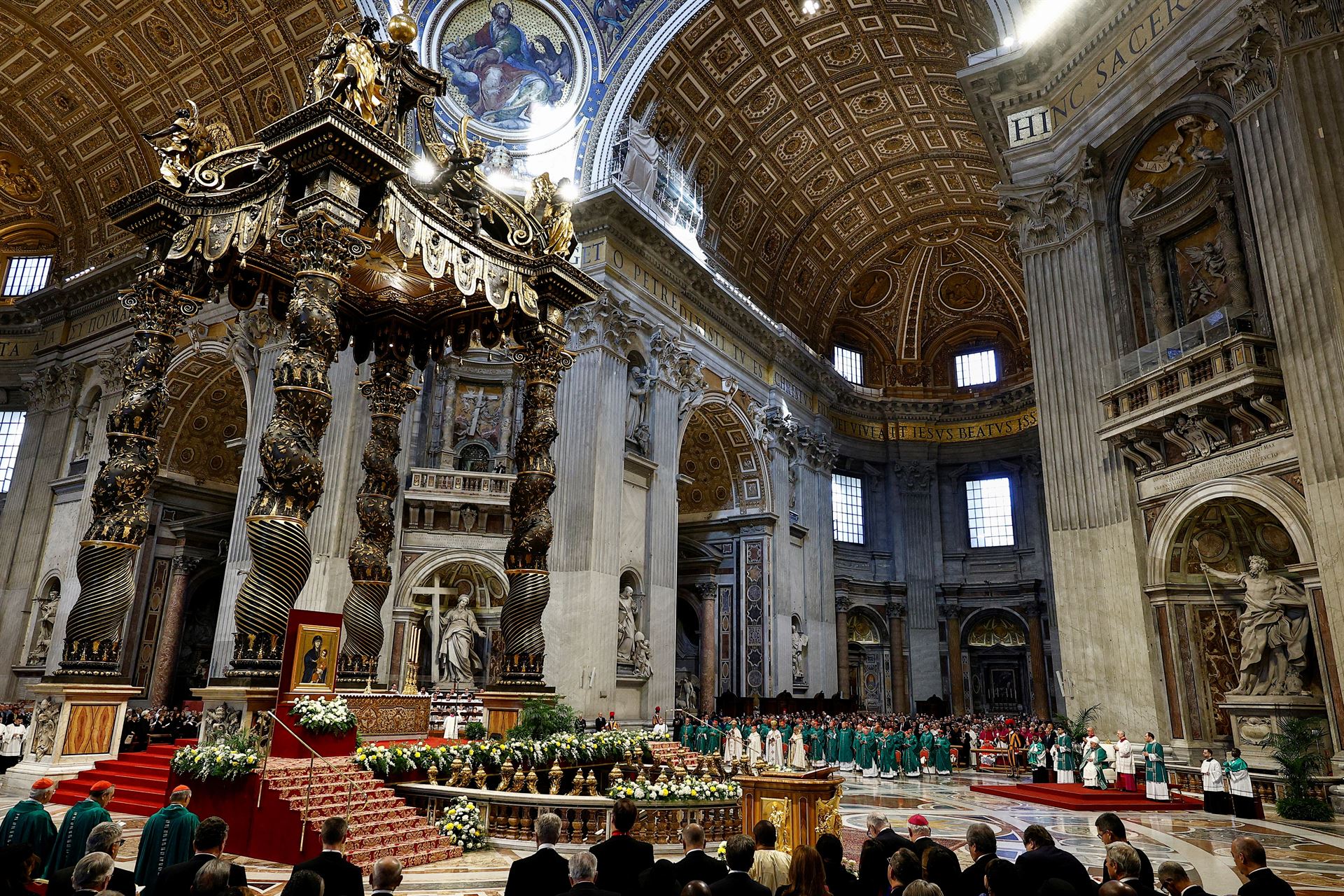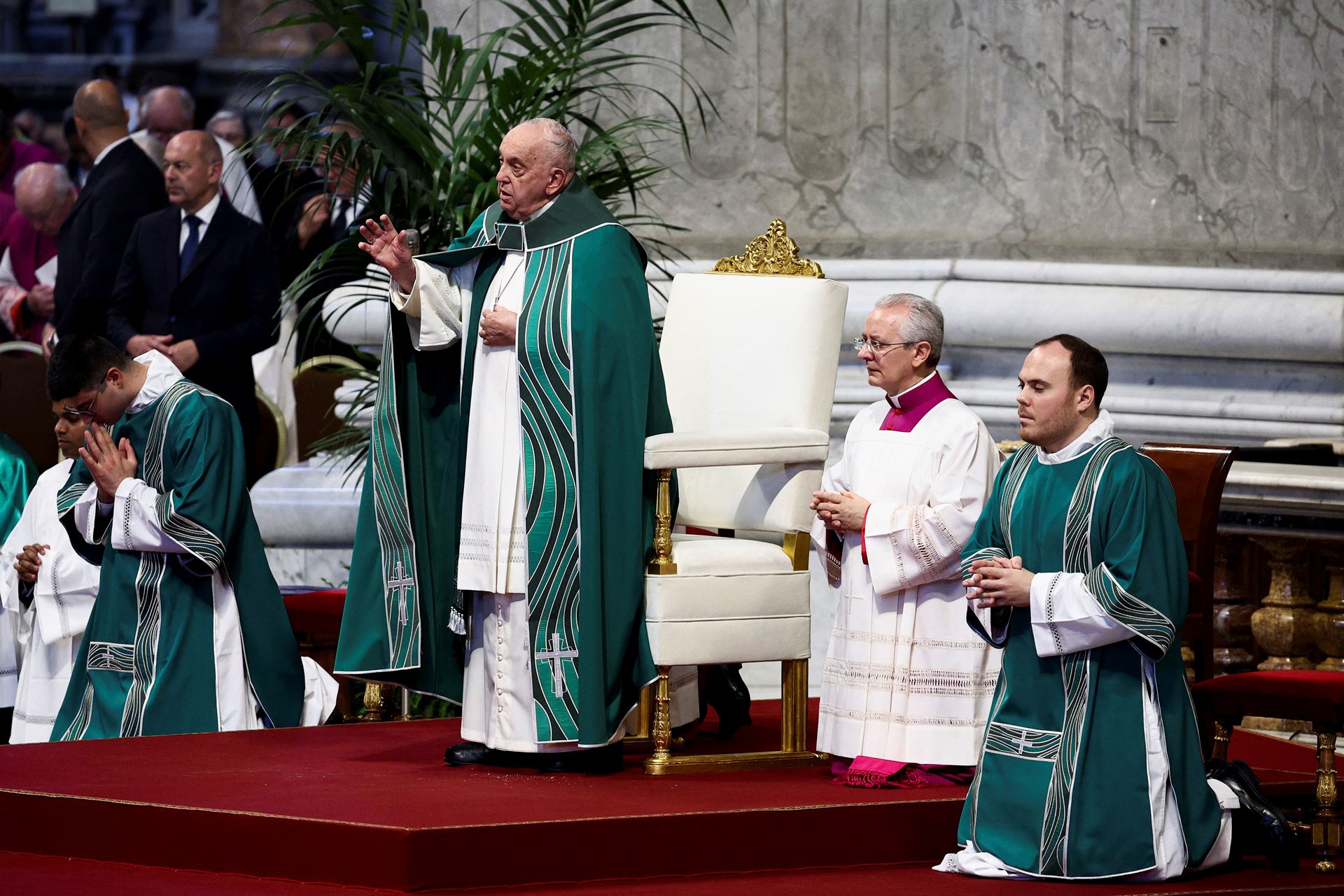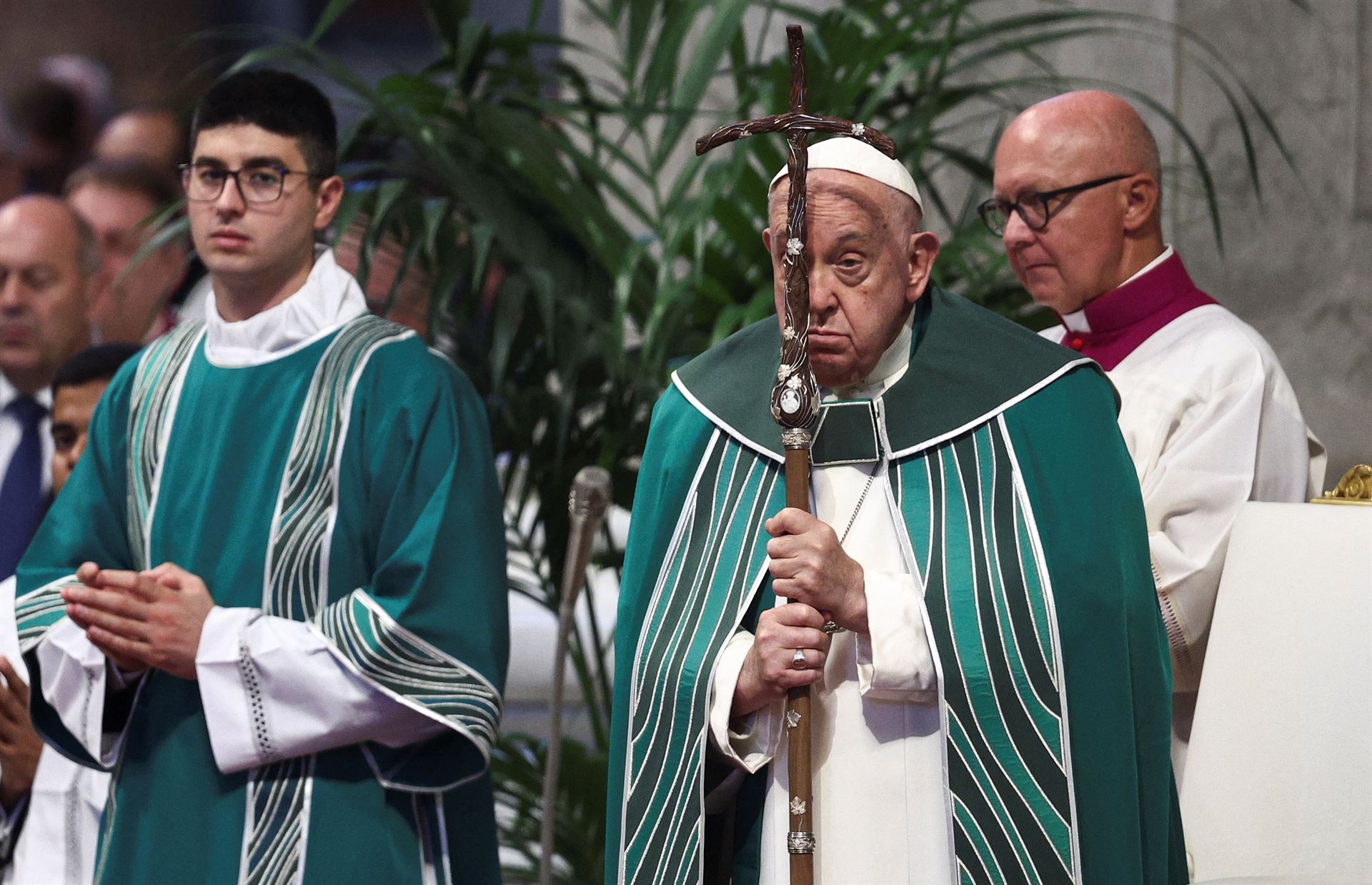
VATICAN CITY - After a Vatican summit on the future of the Catholic Church that ended without enacting any major reforms, Pope Francis is facing questions about whether his 11-year papacy is running out of steam.
The pontiff, who turns 88 in December and has suffered bouts of poor health, invested four years in preparing the summit, which yielded no concrete action on issues including expanding roles for women in the Church.
"It's difficult to see big innovations coming out of a papacy that's more than 11 years old," said Rev. Thomas Reese, a Jesuit priest and commentator. "Part of what we're seeing is the novelty of Pope Francis is wearing off."
READ MORE: Vatican restorers set to work on St Peter's centrepiece
The summit that ended on Saturday included cardinals, bishops and lay people from more than 110 countries, and the 368 members with voting rights included nearly 60 women.
A final text called for women to be granted more leadership roles in the Church but stopped short of asking for them to be ordained as clergy.
There was now "disappointment, even heartbreak" among many Catholics, said Natalia Imperatori-Lee, a religion professor at Manhattan University.
"Young people are figuring out that there is among the innermost circles of the church a reluctance to change ... that is stunning," she said.

The 52-page final document from the Synod of Bishops did not mention the LGBTQ community but made a veiled reference to people in the Church who "experience the pain of feeling excluded or judged because of their marital situation, identity or sexuality".
Marianne Duddy-Burke, executive director of DignityUSA, a group that supports LGBTQ Catholics, said the text was "insufficient in addressing the pastoral and doctrinal harm being done to LGBTQ+ people and our families by the Church".
ALSO READ: Vatican moves to calm bishops over same-sex blessings approval
Pope’s pace slowing
Francis has sought to open the Catholic Church to uncomfortable conversations and to engage with as wide an audience as possible.
He has suffered from influenza and related problems a number of times since the start of 2023, and was forced to cancel a planned trip to the COP28 climate meeting in Dubai.
His age and occasional ill health have led some Church watchers to revive speculation that he may eventually resign. Francis has said he has no such plans. In March, he called the possibility a "distant hypothesis".
Francis has no other major summits or foreign trips scheduled this year, and his 2025 agenda will be packed with events and meetings for the Catholic Holy Year, during which 32 million pilgrims are expected to converge on Rome.

Some Synod participants defended the assembly, saying its work would go on though 10 study groups Francis has asked to continue considerations on some of the more divisive issues, including women's leadership and welcoming LGBTQ Catholics.
The study groups are to report to the pope next June and may recommend wider reforms.
"The 'hot button' topics have moved into study groups that don't end today," said Anna Rowlands, a professor and political theologian at England's Durham University who participated in the synod as a non-voting expert. The central question, she said, is: "Can they deliver thoughtful renewal plans next year?"
READ MORE: Pope Francis cancels meetings due to mild flu, Vatican says
The four-year synod process, first convoked by Francis in March 2020, has been a signature initiative of his papacy. It involved an unprecedented two-year canvassing of Catholics' opinions and two summits in Rome, held a year apart.
Advocates for bigger roles for women in the Church had hoped the 2024 synod assembly might call for women to serve as deacons - ordained ministers who, unlike priests, cannot celebrate the Mass. In its final text, the synod said the question "remains open".
"The document has reaffirmed that we heard women in every region of the world say they continue to encounter obstacles to living out their Christian faith as full members of the Church," said Catherine Clifford, a voting synod member and part of the committee responsible for drafting the final document.
"The question is not closed, and that in itself I think is an encouragement," said Clifford, a professor at Saint Paul University in Ottawa.


